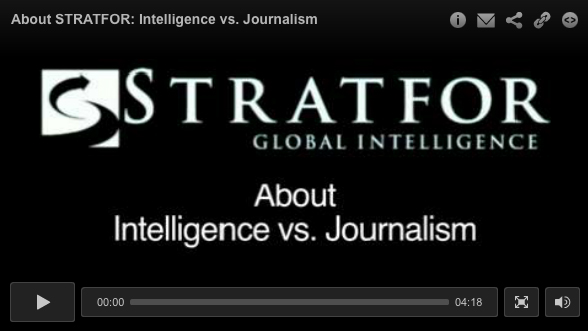Re- the Trans-Pacific Partnership "trade" agreement:
From the Yes Lab's press release:
DALLAS PARTY ENDS BADLY FOR U.S. TRADE REPS AND FEDERAL AGENTS
Dozens of rogue "delegates" disrupt Trans-Pacific Partnership gala with "award," "mic check," mass toilet paper replacement
* * * * *
Two dozen rogue "delegates" disrupted the corporate-sponsored welcome gala for the high-stakes Trans-Pacific Partnership (TPP) trade negotiations yesterday with a fake award ceremony and "mic check." Other activists, meanwhile, replaced hundreds of rolls of toilet paper (TP) throughout the conference venue with more informative versions, and projected a message on the venue's facade.
The first action began when a smartly-dressed man approached the podium immediately after the gala's keynote speech by Ron Kirk, U.S. Trade Representative and former mayor of Dallas. The man (local puppeteer David Goodwin) introduced himself as "Git Haversall," president of the "Texas Corporate Power Partnership," and announced he was giving Kirk and other U.S. trade negotiators the "2012 Corporate Power Tool Award," which "Haversall's" partner held aloft.
The crowd of negotiators and corporate representatives applauded, and "Haversall" continued: "I'd like to personally thank the negotiators for their relentless efforts. The TPP agreement is shaping up to be a fantastic way for us to maximize profits, regardless of what the public of this nation—or any other nation—thinks is right."
At that point, the host of the reception took the microphone back and announced that the evening's formal programming had concluded. But Mr. Haversall confidently re-took the microphone and warmly invited Kirk to accept the award.
Kirk moved towards the stage, but federal agents blocked his path to protect him from further embarrassment. At that point, a dozen well-dressed "delegates" (local activists, some from Occupy Dallas) broke into ecstatic dance and chanted "TPP! TPP! TPP!" for several minutes until Dallas police arrived.
Fifteen minutes later, another dozen interlopers from Occupy Dallas interrupted the reception with a spirited "mic-check." Outside, activists projected a message on the hotel, and throughout the night, delegates discovered that hundreds of rolls of custom toilet paper had been installed in the conference venue.
 The activists disrupted the gala to protest the hijacking of trade negotiations by an extreme pro-corporate agenda. "The public and the media are locked out of these meetings," said Kristi Lara from Occupy Dallas, one of the infiltrators. "We can't let U.S. trade officials get away with secretly limiting Internet freedoms, restricting financial regulation, extending medicine patents, and giving corporations other a whole host of other powers allowing them to quash the rights of people and democracies, for example by offshoring jobs in ever new ways. Trade officials know the public won't stand for this, which is why they try to keep their work secret—and that's why we had to crash their party."
The activists disrupted the gala to protest the hijacking of trade negotiations by an extreme pro-corporate agenda. "The public and the media are locked out of these meetings," said Kristi Lara from Occupy Dallas, one of the infiltrators. "We can't let U.S. trade officials get away with secretly limiting Internet freedoms, restricting financial regulation, extending medicine patents, and giving corporations other a whole host of other powers allowing them to quash the rights of people and democracies, for example by offshoring jobs in ever new ways. Trade officials know the public won't stand for this, which is why they try to keep their work secret—and that's why we had to crash their party."
There is mounting criticism of the U.S. role in pushing the negotiations forward in secrecy, despite the public's overwhelming disagreement with TPP goals. ("Buy American" procurement preferences are supported by over 85% of Americans, but U.S. trade negotiators are preparing to accept a ban on such preferences. Two weeks ago, 69 members of Congress sent a letter to President Obama asking him not to accept that ban.)
Many are calling the Obama administration duplicitous: while the administration publicly hypes a plan to revitalize American manufacturing and create jobs in the U.S., U.S. trade officials push for new "investor rights" that would make it easier for American companies to lay off domestic workers and open plants overseas.
"The TPP has been branded as a trade 'negotiation' by its corporate proponents, but in reality it's a place for big business to get its way behind closed doors," said Pete Rokicki of Occupy Dallas. "This anti-democratic maneuver can be stopped if the public gets active—just look at the movement that killed the ill-advised SOPA (Stop Online Piracy Act) law a few months ago. That's why Obama's trade officials lock the public, the press and even members of Congress from the trade negotiation process."
"We're really happy to know that even in their most private moments, US trade reps are reminded that a vast majority of the public stands opposed to corporate-friendly, closed-door trade deals like the TPP," said Sean Dagohoy from the Yes Lab, who assisted in the actions.
Here's a summary of the provisions of the TPP; more at
Public Citizen Global Trade Watch.
UPDATE: F.w.i.w.,
some people are starting to notice that maybe there's a problem with allowing 600 megacorps to write our treaties while everyone else including Congress is kept in the dark.







.jpg)



.jpg)
.jpg)

.jpg)
